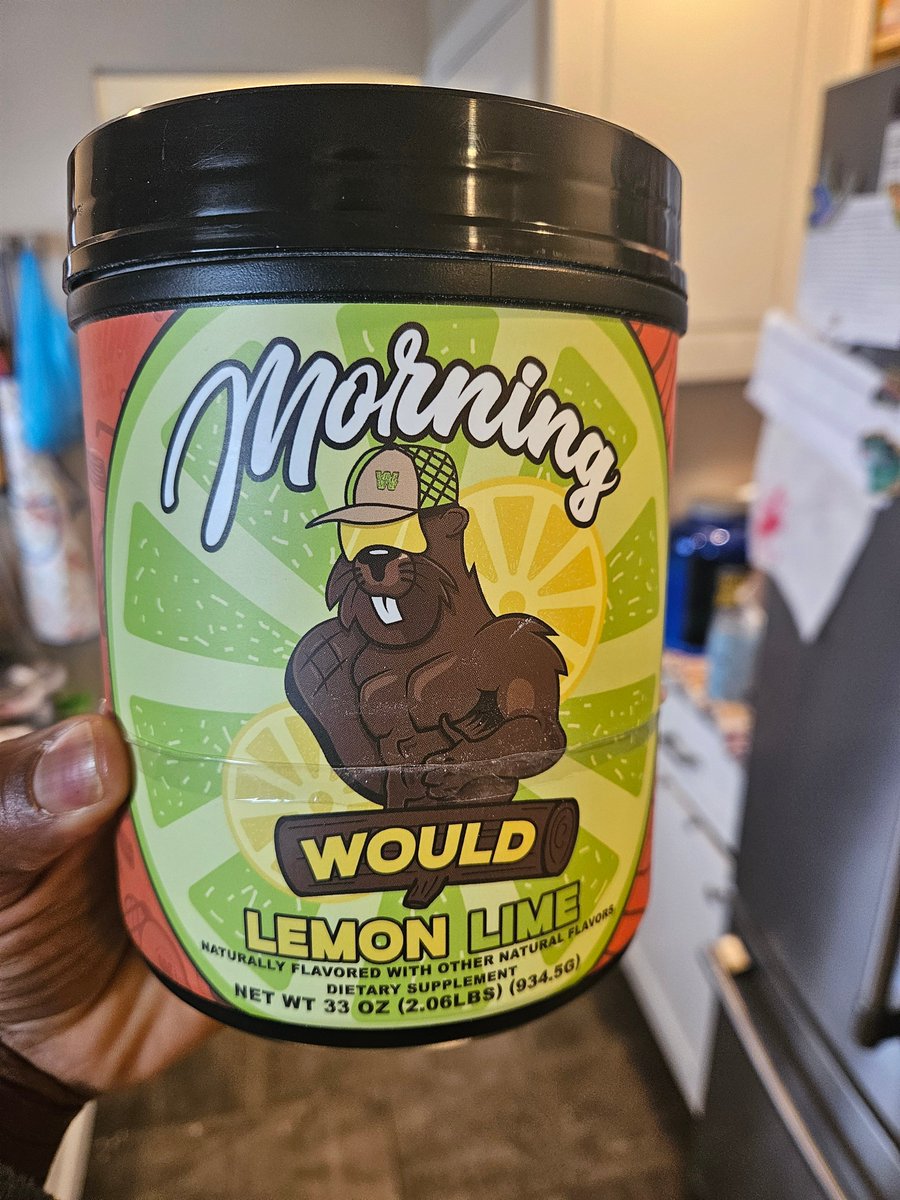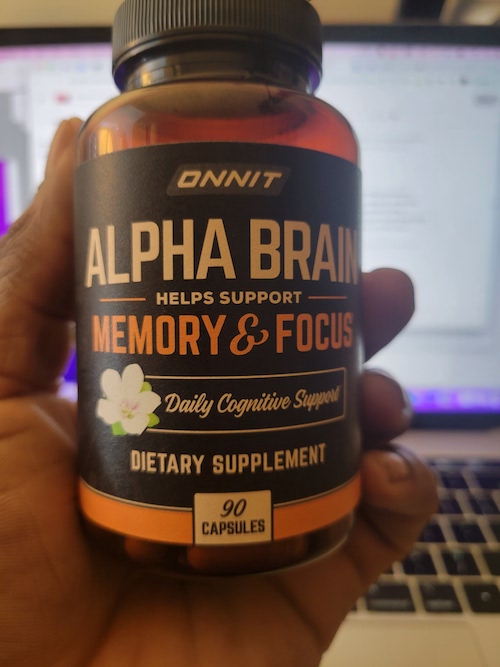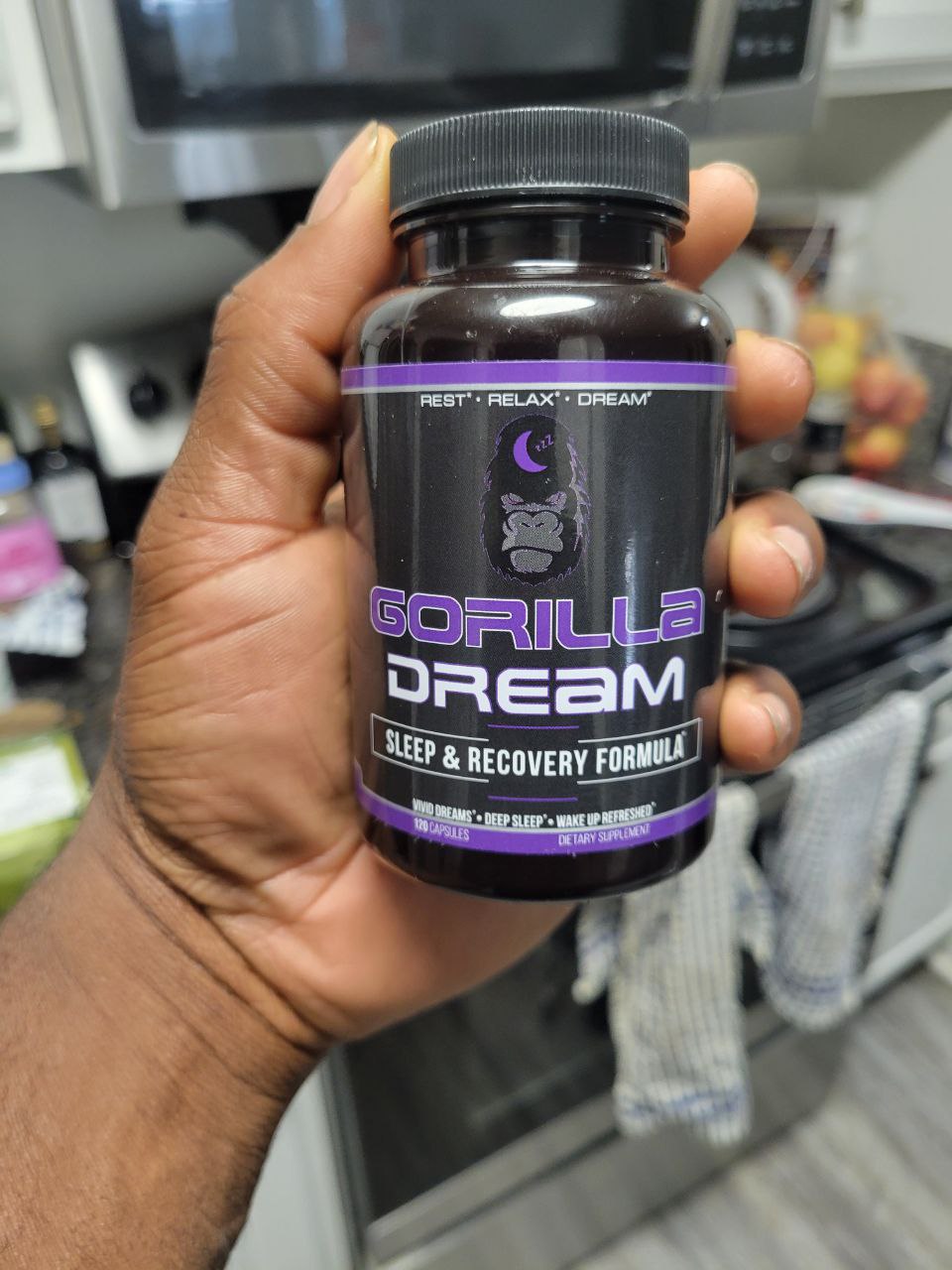For the past month, I’ve made a serious effort to improve my sleep. There are multiple reasons for this:
- The importance of sleep hygiene increases the older I get. Melatonin levels decline gradually over the years. This affects the quality and efficiency of my sleep, and low melatonin levels correlate with various chronic health conditions [Source].
- I hate feeling tired. I use the Oura Ring to track my sleep. There is a correlation between how much deep sleep I get and how I feel when I wake up.
Even without a ring, I know how bad I feel in the morning when I had trouble sleeping the night before. [Check out the Oura Ring here] - I occasionally suffer from night terrors. I have various theories on why, many dating back to childhood abuse, but I can typically keep them at bay when my sleep quality is on point. I know this because outside of events in my home, I’m most susceptible to night terrors when my body is recovering from jet lag after a long trip.
Nothing in your life gets better if you don’t sleep well. Lack of sleep affects your ability to focus, work out, and it even affects your ability to fight off the common cold. For most of my life, I had no trouble sleeping. However, I haven’t been as rested over the past two years.
I mentioned this to my buddy Joel Runyon, and he recommended his product, Impossible Sleep. He even gave a free sample. Well, it works. And I know it’s not just me. My Oura Ring also reflects that I’m sleeping better. I highly recommend it.
You could just take my word for it and click on the link above, but I’m sure you want to know a little more about this product. Well, I’m happy to educate you about Impossible Sleep and how you can use it to sleep better, age better, and feel ready to face the day, every day.
I also started reading Dan Go’s newsletter for High Performers. He puts out some great information on improving your sleep. You can read his past posts and sign up here.
If you decide to try out Impossible Sleep, use promo code Ed20 to get 20% off the first order of a subscription batch you set up.
Dr. Andrew Huberman sleep cocktail
Dr. Huberman is the inspiration for the powerful yet simple combination that Impossible Sleep is based on.
For those not familiar with Dr. Andrew Huberman, the introduction from his Wikipedia page does a great job of introducing you to him:
Andrew D. Huberman is an American neuroscientist and associate professor in the Department of Neurobiology at the Stanford University School of Medicine who has made contributions to the brain development, neuroplasticity, and neural regeneration and repair fields.
Huberman has been a guest on the Joe Rogan Podcast, The Tim Ferriss Show, and even has his own podcast, The Huberman Lab Podcast.
While his contributions to neuroscience have been published in top journals including Nature, Science, and Cell and has been featured in TIME, BBC, Scientific American, Discover, and other top media outlets, it’s his comments about sleep that have generated quite a buzz and motivated the creation of Impossible sleep.
Getting sleep right:
— Andrew D. Huberman, Ph.D. (@hubermanlab) August 20, 2021
1.Sunlight exposure w/in 30m of waking for 10-30m
2. Avoid bright light (all colors) 10pm-4am
3. *If safe for you*: Mg Threonate (~140mg), Theanine (100-300mg), Apigenin (50mg) 30-45m prior to sleep
4. Keep the room cool
5. No caffeine post 2pm
6. No alcohol
Along with the recommendations in this tweet, he’s also spoken about the positive effect of these modifications and additions in this video and in this podcast episode with Tim Ferriss.
Joel Runyon set out to create a sleep formula based on Huberman’s recommendations, with a slight (but necessary) modification. Huberman recommends theanine, magnesium threonate (or magnesium bisglycinate), and says that apigenin is optional.
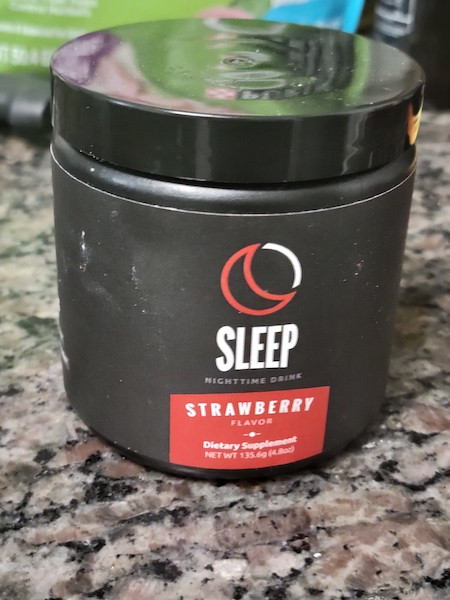
If you want to just hop in and get started, go for it. Purchase at the following link.—>Get it here
For reasons explained later in this article, Runyon’s Impossible sleep formula only includes the recommended dosage of theanine and magnesium. There is no apigenin, but that’s alright because the formula works just as well without it.
However, if you’ve done your research and want to add apigenin (I do with even better effects), you can easily get it from amazon right here—>Purchase the apigenin I use.
Let’s dive deeper into the 3 ingredients of this sleep cocktail. If you don’t care for the science, jump to experience:
- L-theanine
- Magnesium
- Apigenin
- My experience with Impossible Sleep
What is L-theanine and how does it work for sleep?
L-theanine is an amino acid. It is non-mutagenic or non-carcinogenic and well-tolerated. While tea is L-theanine’s most common dietary source, it’s also found in mushrooms. In foods, particularly green tea.
L-theanine can cross the blood-brain barrier within 30 minutes of ingestion [source], allowing it to work quickly to promote relaxation and facilitates sleep. It accomplishes this in a number of ways:
Boosts certain “calming” neurotransmitters
L-theanine elevates levels of GABA, serotonin, and dopamine. These neurotransmitters regulate emotions, mood, concentration, alertness, and sleep, as well as appetite, energy, and other mental abilities. Increasing levels of these neurotransmitters promotes relaxation and helps you get to sleep.
Reverses the effects of caffeine
Caffeine comes with a lot of benefits, but one of the major drawbacks is how it affects the quality of your sleep. Even if you don’t drink any caffeine after 2 p.m. (a common recommendation), caffeine has a half life of 5-6 hrs and a quarter life of 10-12 [Source].
This means that if you have a 16 ounce cup of black coffee—which has 180 mg of caffine—at 2 p.m., by 7-8 p.m. you’ll have 90 mg and by midnight, apporximatrely 45 mg. And to make matters worse, the half-life varies genetically and it can be as long as 10 hours in some people.
Caffeine reduces the amount of slow wave sleep (SWS) your body gets each night. SWS is one of the 4 stages of sleep (along with wake, light sleep, and REM sleep) that your body goes through.
“The counteractive effect of L-theanine against caffeine has also been studied in the assessment of sleep quality. Specifically, L-theanine at 75 mg/kg and 150 mg/kg reversed the caffeine-induced wakefulness; and lower dosages (22.5 mg/kg and 37.5 mg/kg) were able to increase the reduction of SWS by caffeine (7.5 mg/kg).” [Source]
Enhances alpha brain waves
Alpha brain waves are associated with creativity, mindfullness, and relaxation. Alpha waves are also present during Rapid Eye Movement (REM) sleep. This is the stage of sleep where short term memories are converted into longer term ones.
L-theanine appears to trigger the release of alpha-waves, which enhances relaxation and helps you experience more REM sleep at night.
This highlights another appealing aspects of L-theanine: it relaxes without sedation. This means you can use it without worrying about becoming sleepy and fatigued during the day.
What is magnesium and how does it work for sleep?
Magnesium is a element that is responsible for over 300 processes in your body—including sleep. Interestingly enough, scientists aren’t sure exactly how magnesium contributes to sleep, but there is an abundance of evidence which shows how a lack of it disrupts sleep quality.
Magnesium does not present itself in nature unbonded. As a result, there different forms of magnesium (Magnesium l-threonate, magnesium bisglycinate, magnesium orcitrate were the type recommended by Andrew Huberman to take with the cocktail.) to take with various pros and cons
If you’re interested in a list of the most popular magnesium supplements, here is a great list—>9 Different Types Of Magnesium, Plus What They’re Used For
Cortisol and melatonin regulation
Research shows that magnesium improves insomnia symptoms. A group of elderly patients with insomnia were given 500 mg of magnesium daily for eight weeks and experienced the following benefits [Source].
- Fell asleep faster and slept longer
- Increased their sleep efficiency, meaning they spent more time sleeping while they were in bed
- Woke up later and reduced early morning awakening
- Increased concentrations of melatonin, the hormone that makes you sleepy.
- Decreased concentrations of serum cortisol. Cortisol is typically related to stress, but it’s also related to wakefulness.
Restless leg syndrome (RLS) management
People with RLS experience an uncontrollable urge to move their limbs, often peaking as they try to sleep. Thie feeling makes it difficult to fall asleep and stay that way once you manage to.
One study found that sleep efficiency improved RLS patients took magnesium for 4 to 6 weeks [Source].
What is Apigenin and how does it work for sleep?
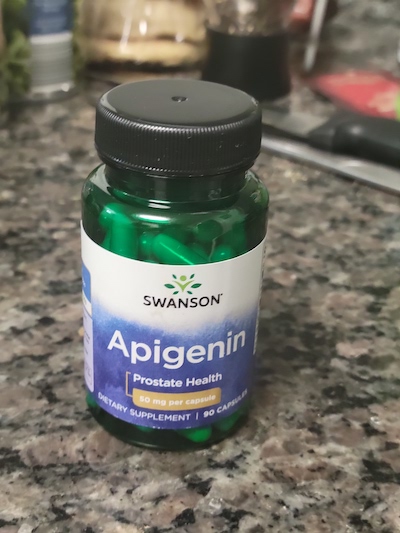
If you’ve ever drank a cup of chamomille tea to relax before bed, then you’ve already been using one of the natures most potent sleep supplements. Apigenin is the active ingredient in chamomille tea that has been shown to not only reduce anxiety and stress, but ease a variety of other conditions as well.
Now in his instructions for the sleep cocktail, he says that the apigenin is optional because it seems to have properties of estrogen antagonism and may promote cancer in women on any other hormone replacement therapies [Source].
Because of this, men should also be careful, though the risk is a lot lower. However, apigenin gives men a serious health boost by preventing and battling prostate cancer [Source].
My experience with Impossible Sleep
The single best part of Impossible Sleep is that it does not leave you with the groggy feeling the morning after the way melatonin can. It also doesn’t induce sleep, per se. Instead, the ingredients induce relaxation, making it easier to fall asleep.
It’s a powder rather than a capsule, meaning you must mix it in water. Since you’re supposed to take it within an hour of bedtime, this may cause a problem for people who don’t want to wake up and use the bathroom.
I haven’t had this issue, and I typically get up to use the bathroom at least once. I suspect it involves getting a deeper sleep (so I’m not as disturbed by slight pressure on my bladder), and deeper sleep increases melatonin levels, which are inversely correlated with nocturnal urinary frequency [Source].
If you’re a man and don’t have any problems with your estrogen levels, I recommended ordering a bottle of apigenin to take with it. There’s a reason why that’s included in the original stack.
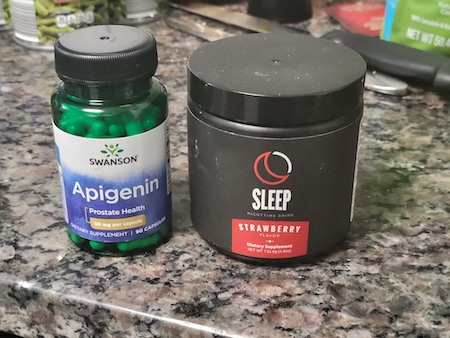
Order apigenin here
Final verdict on Impossible Sleep
The reason most of us have trouble getting to sleep is that we have too much on our minds and poor sleep hygiene. This product can’t make you go to bed at a decent hour or avoid all bright light before you go to bed, but it can help to clear your mind and calm your nervous system.
It doesn’t mess with your hormones and it’s impossible to get addicted to. It helps you wind down and then stay that way once you’re asleep.
With or without the apigenin, I strongly recommend Impossible Sleep. Use discount code Ed20 for 20% off your first subscription order if you decide to pick some up.


